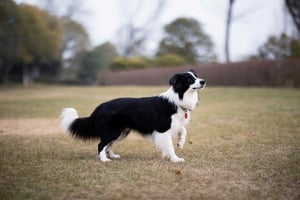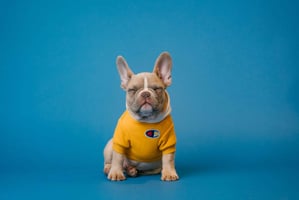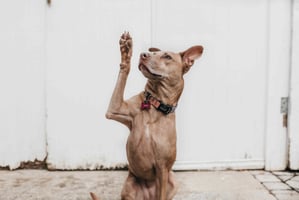Training a Cavalier Spaniel can be both a rewarding and challenging experience. This guide provides...
Cavalier King Charles Spaniel Training: Make Your Dog Well-Behaved
Cavalier King Charles Spaniels are popular companion dogs and great family pets. Training them is an important part of ensuring they grow up to be well-behaved, obedient, and happy. In this article, we’ll discuss the most popular questions about Cavalier King Charles Spaniel training and provide helpful answers.
What is the Best Age to Start Training a Cavalier King Charles Spaniel?
It is best to start training your Cavalier King Charles Spaniel puppy at 8 weeks old. At this age, the puppy has already established basic behaviors and is ready to start learning. Training should be conducted in short, fun sessions and should involve positive reinforcement and rewards.
Tip: Start with basic commands such as “sit”, “stay”, and “come”. Once your puppy has mastered these, you can move on to more complex commands.
What Are the Most Common Training Challenges With a Cavalier King Charles Spaniel?
The most common training challenges with a Cavalier King Charles Spaniel are house-training and leash-training. Both of these can take some time and patience, but with consistent training and positive reinforcement, your dog will eventually learn.
Tip: House-training should start as soon as you bring your puppy home. Set up a routine and be consistent with it. Take your puppy outside to the same spot every time, and reward them for going in the right area. For leash-training, start with short walks and gradually increase the length of the walks. Use treats to reward your Cavalier King Charles Spaniel for walking properly.
What are Some Tips for Training a Cavalier King Charles Spaniel?
Here are some tips for training a Cavalier King Charles Spaniel:
- Be patient and consistent. Training takes time, so don’t expect instant results.
- Use positive reinforcement. Praise your dog when they do something correctly and give them treats as rewards.
- Keep training sessions short. Cavalier King Charles Spaniels have short attention spans, so keep training sessions short and fun.
- Be consistent with commands. Use the same commands and words for each behavior.
- Be aware of your dog’s energy level. If your Cavalier King Charles Spaniel is getting tired or bored, take a break and come back to training later.
What Are the Best Treats for Training a Cavalier King Charles Spaniel?
The best treats for training a Cavalier King Charles Spaniel are small, soft treats that can easily be eaten in one bite. Some good treats for training include:
- Small pieces of cooked chicken or turkey
- Cheese cubes
- Peanut butter and banana
- Cooked vegetables
- Fruit slices
Tip: Avoid giving your Cavalier King Charles Spaniel too many treats as it can lead to obesity. Measure out the treats and only give your pup a few at a time.
What Are the Best Toys for Training a Cavalier King Charles Spaniel?
The best toys for training a Cavalier King Charles Spaniel are interactive toys that can keep your pup’s attention and provide them with mental stimulation. Some good toys for training include:
- Kongs
- Puzzle toys
- Treat-dispensing toys
- Rope toys
- Soft plush toys
Tip: Choose toys that are appropriate for your Cavalier King Charles Spaniel’s size and energy level. Avoid small toys that can be a choking hazard.
What Are the Best Training Tools for a Cavalier King Charles Spaniel?
The best training tools for a Cavalier King Charles Spaniel are a leash, a collar, and a crate. A leash and collar are essential for taking your pup for walks and teaching them basic commands. A crate is a great tool for house-training and providing your pup with a safe and secure place to relax.
Tip: When introducing your Cavalier King Charles Spaniel to a crate, start off slowly and make sure the crate is comfortable and inviting. Place treats and toys inside to encourage your pup to explore the crate.
Conclusion
Training a Cavalier King Charles Spaniel is an important part of raising a well-behaved and obedient dog. Start training your puppy at 8 weeks old and be consistent with the training. Use positive reinforcement and rewards to encourage good behavior. With patience and dedication, your Cavalier King Charles Spaniel will become a happy, well-trained pup.



